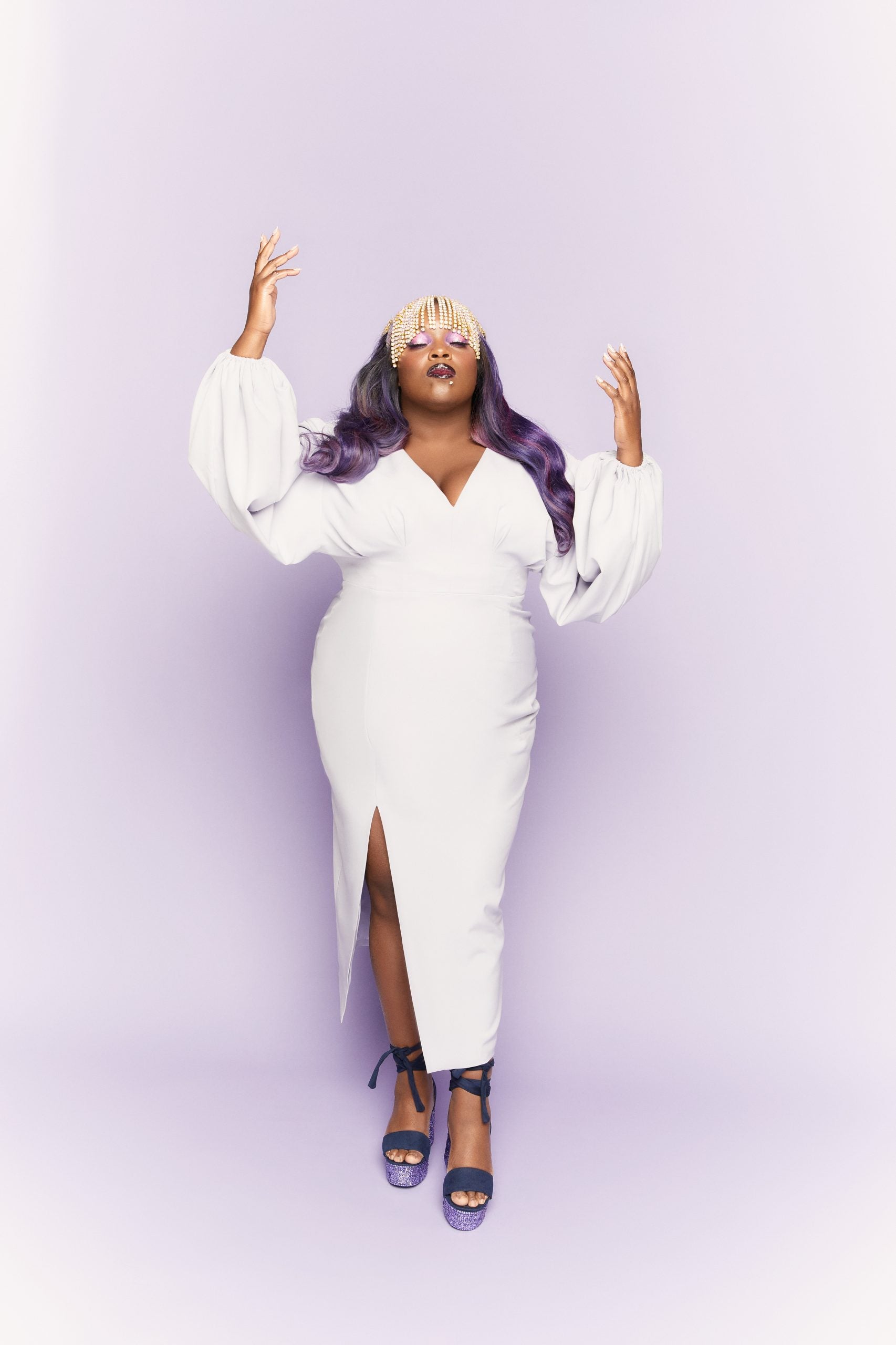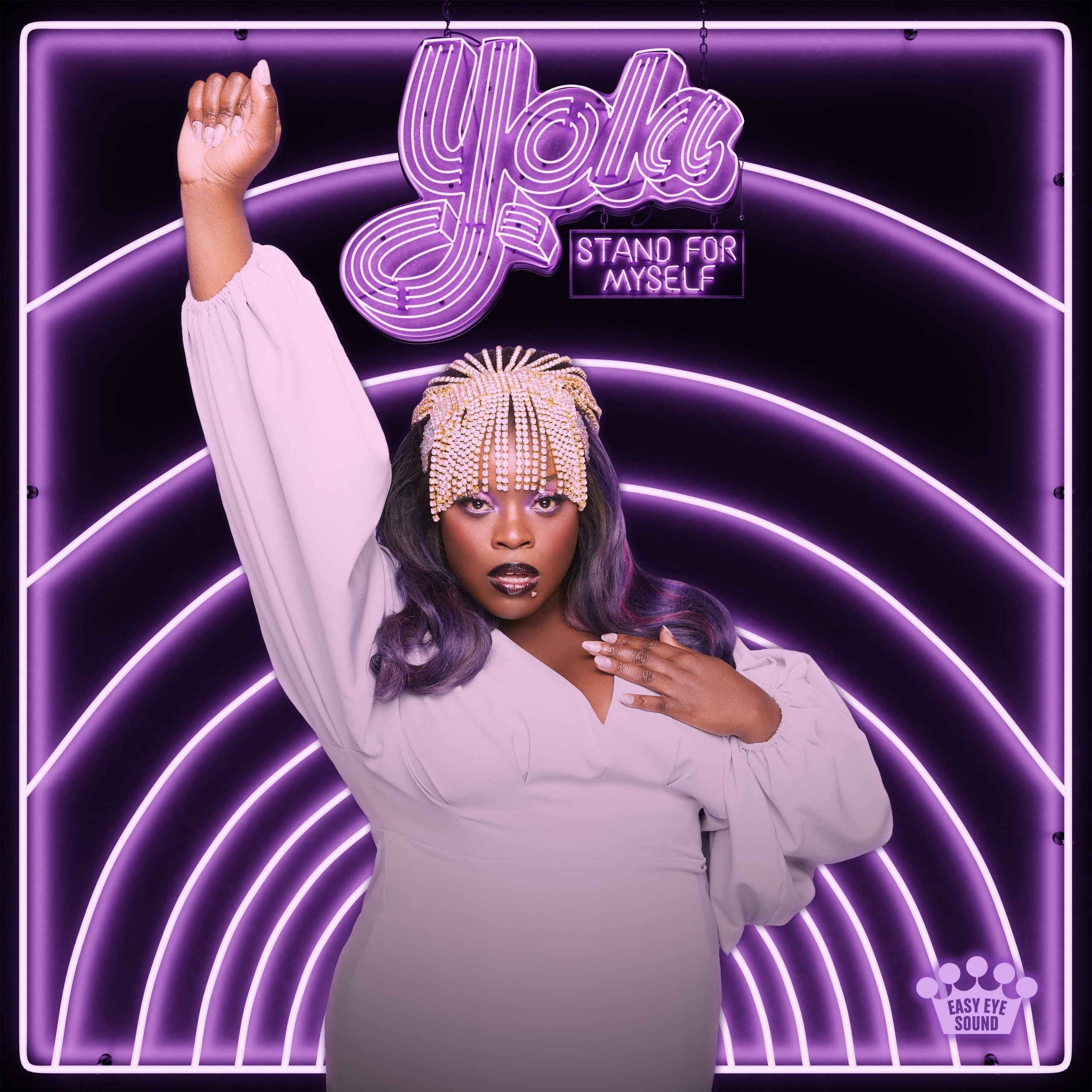
Black British superstar Yola shares her path to finding agency as a musical artist and the personal realizations she discovered on her journey creating her critically acclaimed new album Stand For Myself. Her new album celebrates her belief in the possibility of a paradigm shift beyond tokenism and bigotry, which have deeply impacted her personal life and professional career as a fast-rising genre-fluid vocalist, songwriter, musician, and actress who has, landed four Grammy nominations on her debut record.
It was the fall of 2013 when I started writing music again. Riding my motorcycle back from my mother’s funeral in tears, I had an epiphany that changed the course of my career.
Prior to that point, I’d been in a rut — one caused by the kind of control freaks that strangle all of the inspiration out of you and render you a participant rather than master of your own life. I was told my sound was too different and advised to skew my voice. Rather than being encouraged to blossom as an individual, once my potential was realized, others attempted to live out their dreams vicariously through me. That meant that from a young age I had to defend my ideas, my agency, my path, even my particular brand of Blackness, all of which seemed to influence what people thought I should and shouldn’t be doing musically.

While on that motorcycle that day, I decided to learn how to play the guitar so I could transition from being a top-line writer to an artist who could get ideas that normally only lived inside my head out and into the real world. I knew I could write lyrics, but I’d been mentally programmed over many years to be scared of instruments — really to be scared period. I was told I didn’t have the inclination to learn an instrument, conveniently by one of my co-writers, who told me I shouldn’t bother; he’d take care of all that. That was lesson number one for me: never let an opportunity to deprogram inbuilt fears that stunt your personal growth pass you by.
Isolation
White supremacy seeks to make everyone else feel like an isolated other, never forget that. Early in my career, I was the only Black woman in the majority of the creative spaces I was in. Being indiscriminately into all kinds of music often made me an outcast. Being able to call on a wealth of musical exposure also made me indispensable on many projects I got involved in so I would often go from seeming pariah to core team member at the drop of a dime. That same musical excellence, however, would eventually make someone want to own me, fear me, become a fan of my ideas and simultaneously envy/hate me all at once.
Being isolated meant that if I ever chose to not be a tool for someone’s gain, the tropes that blight Black women could easily be weaponized to keep me in my place. My second lesson was never find yourself without allies. Whether of the same background or people who have been othered in different ways, allies can empathize; they see you.
Tropes
In my experience, it’s been common for female singers (especially Black female singers) to feel less than, even if they write all the lyrics and melodies to a song. There is always a player involved who will harp on their non-instrumentalist background to give more credence to the fact that they just played a CDG chord progression (an easier three-chord song structure that makes up a lot of popular music). Seeing that play out time and time again reminded me that if the legacy of Sister Rosetta Tharpe was as well known as it should have been, this wouldn’t be the case. But tropes had descended upon us as a people and somehow we were no longer a part of the story of rock n’ roll, despite the fact that we invented it. Yes, a Black woman invented Rock n’ Roll, and still I once heard a record company executive say “no one wants to hear a Black woman sing Rock n’ Roll.”
By extension, I also realized how much of a negative connotation being a background singer had. I promised myself I would never do a job if it didn’t have a leading vocal role attached to it. I thought I’d nailed it until I noticed the lack of dark skin women in lead vocal roles. No matter how pivotal our contributions were, they weren’t being reflected in the music we saw marketed in the U.K. When they were, we were 20 feet from stardom, a lead singer with the overbearing collaborator, silenced, underappreciated, abused but rarely choosing her own fate from the get-go. The next lesson I learned, albeit late, was to never let myself be caught in a trope that I couldn’t escape. I must be the one to tell audiences who I am and if I wanted to be “genre-fluid” (as I termed it) I was going to have to claim that freedom myself.

Standing for myself
Knowledge of yourself and your path is power. Acquiring the skills to express yourself fully in art or whatever you do in life is essential. I’m thankful to have finally learned that lesson. As a Black woman, there isn’t a situation where your ability to be autonomous as a creator won’t be useful. You’ll always need people, but having the choice to create alone is everything. If you’re not in a place of having agency yet, you can get here, if you’re willing. You might have to let go of yourself for a new beginning, but you’ll never regret taking a stand for yourself.
Yola recently announced Starlight, a celebration of her anthemic new record, Stand For Myself, with a performance of the entire album, taped in front of a live audience during this year’s Newport Folk-On event. It will also broadcast across multiple time zones on Wednesday, August 4-5 via Moment House. For more information please visit: https://www.momenthouse.com/yola
